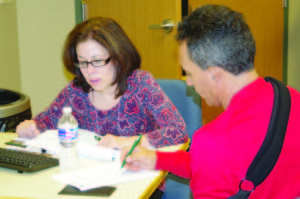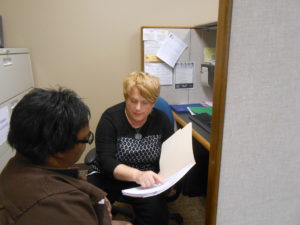The Client Engagement Model has been going strong for a little over 90 days now. We have learned a lot about our clients as a result. Poverty has many faces, names, stories and cultural backgrounds, but our clients have so much in common. They want the best for their families, whether they have been struggling all their lives or recently have had some very bad luck. They want good jobs, they want their limited funds to go as far as possible and they want positive relationships that matter.

Our program participation has significantly increased now that we are sitting and talking about our client families’ needs and how we can help them meet those needs. People are glad they have had an opportunity to take steps to make positive things happen. Empowerment interviews are the reason these situations have occurred. I like to look at it as double support: we’re providing food, which is the immediate need, and we’re providing programs and services for long-term needs.

Our next task to address is outcomes and tracking. We believe it’s important to see progress, check up on clients, and let them know we are always here for them. Every 90 days, volunteers will contact clients who we served, inquiring about programs and referrals that were recommended to them. It’s one thing to say, “yeah I gave Ms. Jones a referral here and a referral there,” but it’s more important to show Ms. Jones that we not only care about her immediate needs (food), but we also care about her becoming self-sufficient. We want our actions, not just words, to show her we truly care.
Duncan Ward
Director of Empowerment Programs